FIFA have opened up disciplinary proceedings after Granit Xhaka celebrated his goal against Serbia by making a two-headed eagle gesture with his hands.
Speaking after the match about the gesture, Xhaka said, “Frankly, my opponents did not interest me at all.
“It was for my people, who always supported me. For those who did not neglect me, in my homeland, where my parents’ roots are. These were purely emotions.”
FIFA claim the gestures ‘risked inflaming political tensions in the Balkans among Serbian nationalists and ethnic Albanians’ and Xhaka is now facing the possibility of a two-match ban. Article 54 of FIFA’s disciplinary code calls for an automatic two-match ban for those found guilty of ‘provoking the general public’, a ridiculously vague clause that allows the governing body to pick and choose what it deals with.
They opened proceedings after the Serbian FA (FSS) filed a complaint about the goal celebrations.
FIFA have also opened proceedings against the FSS for crowd disturbances and the display of political and offensive messages by Serbia fans just days after they were fined for a similar offence against Costa Rica. Serbia manager, Mladen Krstajic, is also under investigation for his alleged comments after the match.
Speaking to the complex geopolitical situation in the region that has resulted in a number of players turning out for Switzerland because Kosovo was not recognised as a nation when they declared their international allegiance, Xhaka and Xherdan Shaqiri, who has also been charged, both used the gesture, which references the Albania flag, when they scored.
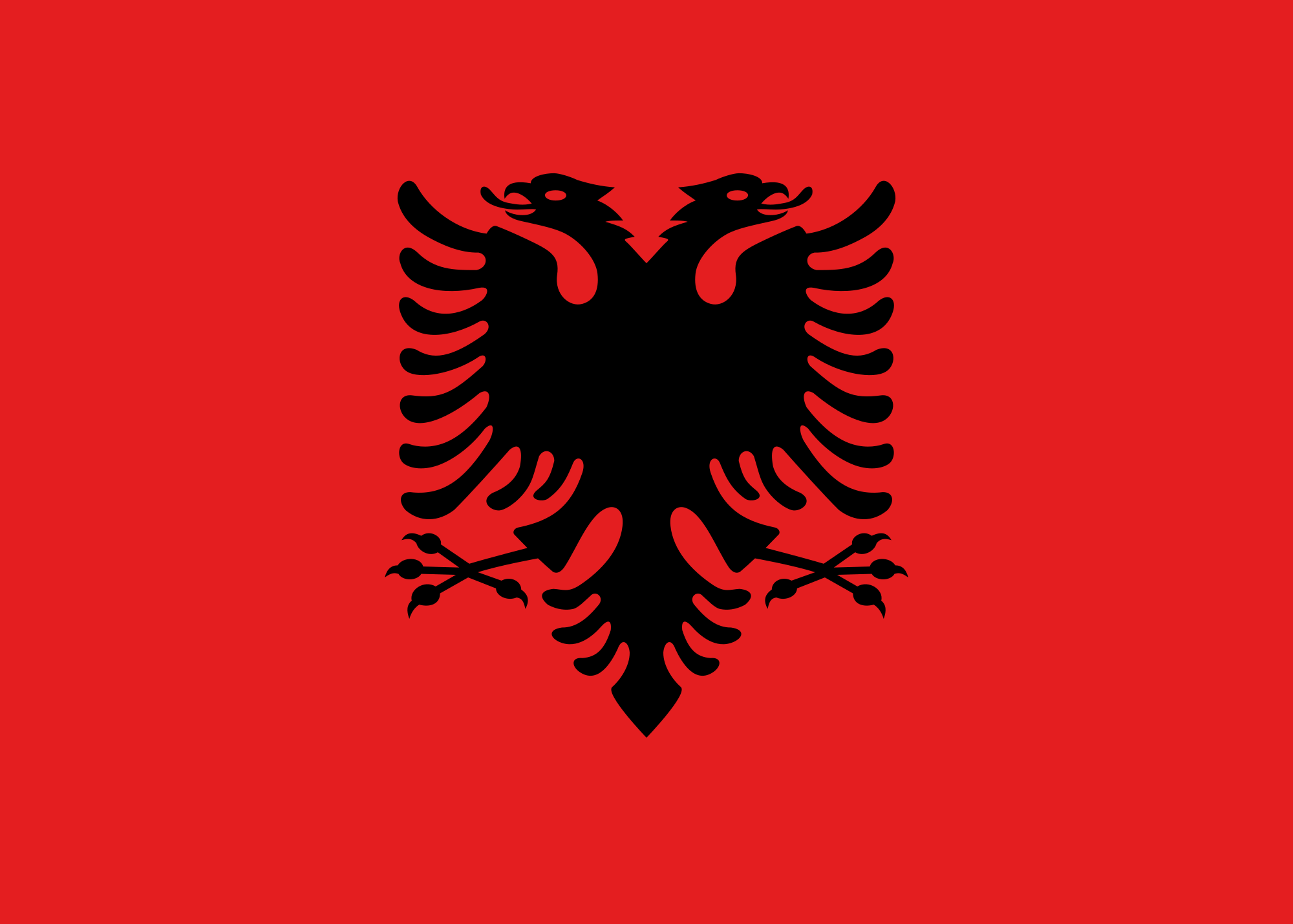
Both players have Albanian heritage with Xhaka’s parents fleeing Kosovo before he was born. His father served three-and-a-half years in prison for protesting the communist central government in Belgrade.
Shaqiri was born in Kosovo, the former Serbian region that declared independence in 2008. His family fled the country for Switzerland.
Speaking after the match, Shaqiri said, “I think in football you have always emotions.
“You can see what I did and I think it’s just emotion. I’m very happy to score this goal. It’s not more. I think we don’t have to speak about this now.”
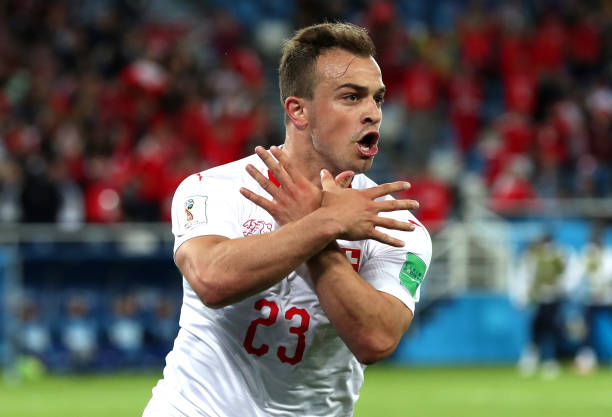
Xhaka, meanwhile, took to his Snapchat account to say, “Serbia I broke your net, because you call me Granit Kosova.”
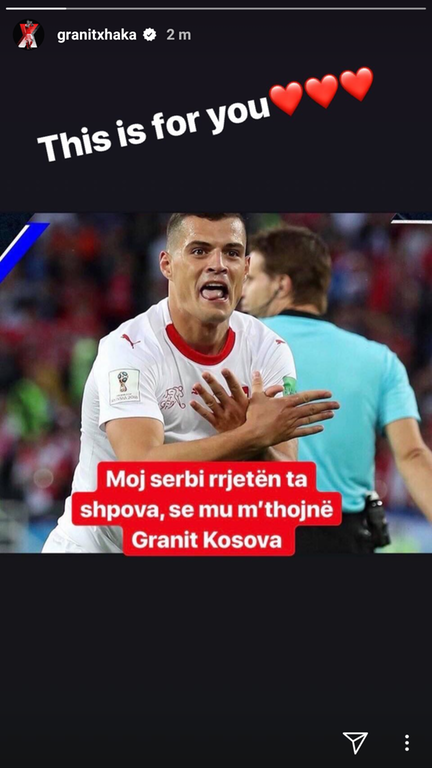
The Swiss captain, and Xhaka’s new Arsenal teammate, Lichtsteiner came to the defence of both players.
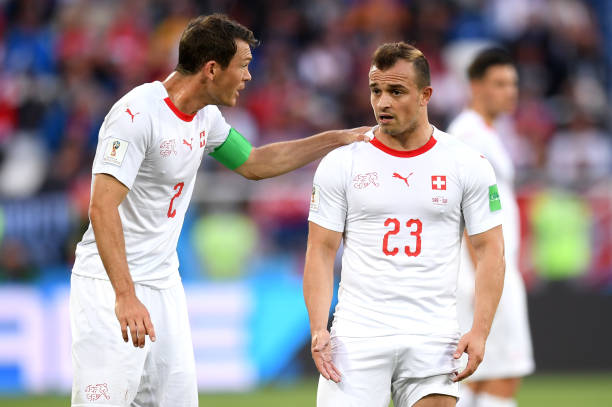
“They were provoking us for two or three days, so I think they beat each other,” he said. “They are not angels, but for me, it was a very hard war for many of our players’ parents, there were pressures and provocations so for me everything is fine.”
Granit Xhaka previously said that his father’s struggle for freedom in Kosovo spurred him on to be the best player possible.
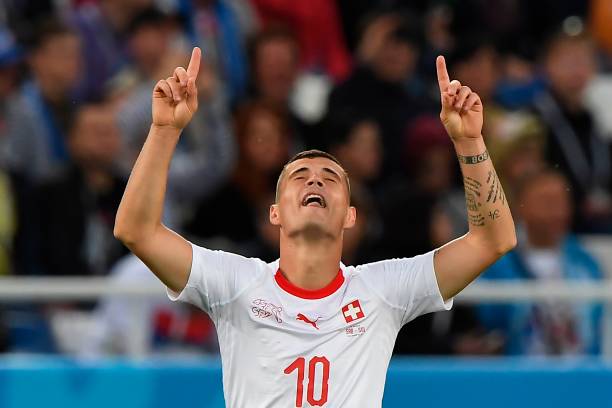
Ragip Xhaka was 22-years-old when he was taken to jail, where he spent the next three-and-a-half years for participating in demonstrations against the communist central government in Belgrade. Seeking democracy and freedom at a time of conflict and confusion, he paid a high price for voicing his beliefs.
“It’s true that my father was imprisoned for three and a half years and it was because he stood up for what he believed in,” Xhaka told Swiss newspaper Blick in 2014. “It’s not a taboo subject in our household, we talk about it. After all, I want to know what happened.”
While FIFA strive to keep politics out of football, something many fans would also like to see, it is simply impossible to do.
Politics touches every part of our lives and no matter how much people would rather it wasn’t the case, as long as humans play and run football, politics will continue to play an important role no matter what FIFA or anyone else wants.
FIFA have also opened proceedings against Croatia and Argentina after crowd disturbances from both sets of fans. They have also fined Poland 10,000 Swiss Frances (£7,625) for the display of a political and offensive banner during their match against Senegal.

